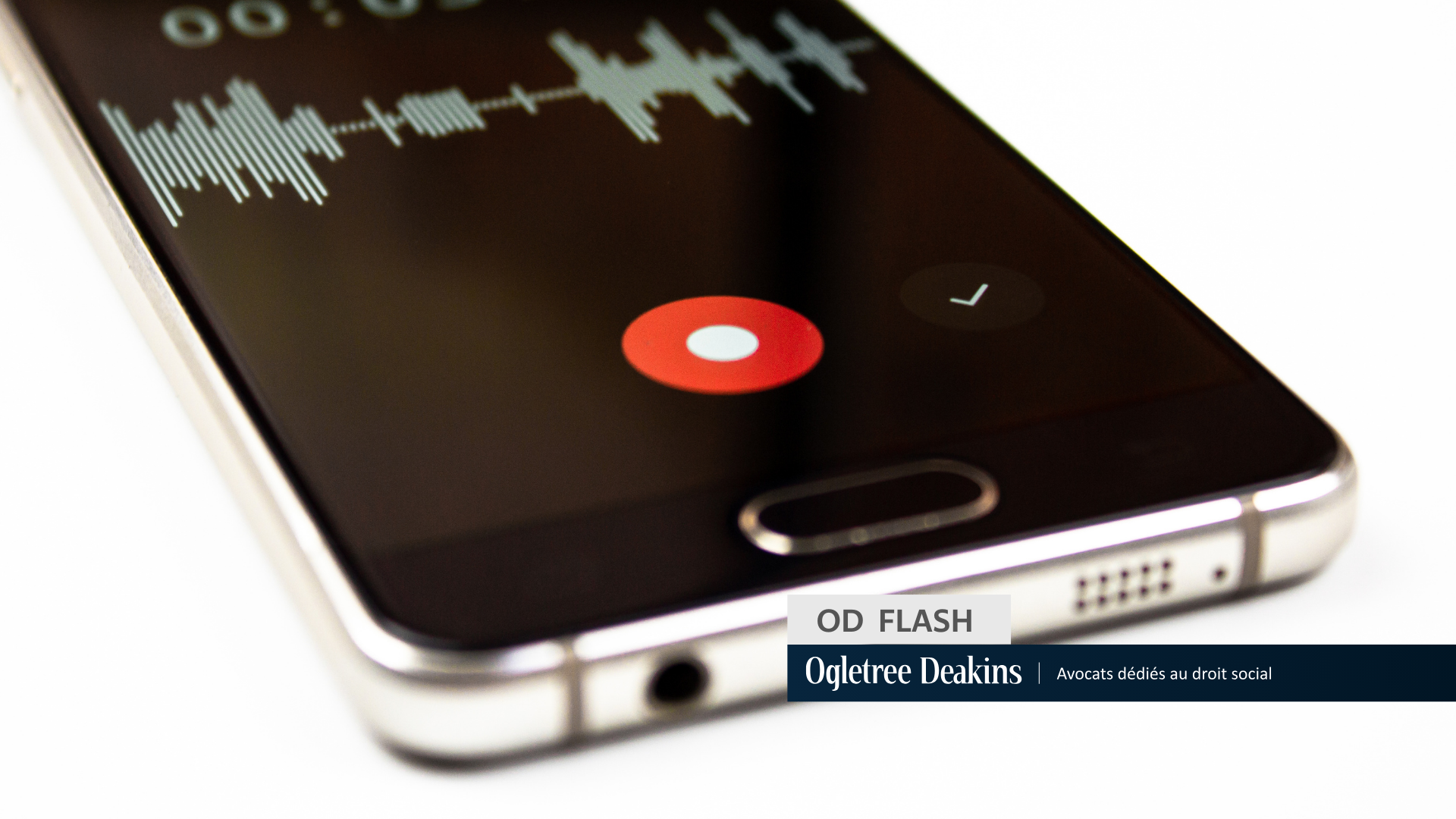Cass. Soc., 10 juillet 2024, n°23-14.900, Publié
In a judgment of 22 December 2023, the full Court of Cassation stated, in an unprecedented manner, that the unfairness of a piece of evidence does not necessarily mean that it should be excluded from the proceedings. This principle, which has since been reiterated on numerous occasions, was confirmed by the Supreme Court in a judgment of 10 July 2024.
In this case, an employee was dismissed in June 2015. Claiming that she had been subjected to psychological harassment, she brought an action before the Labour Court in October 2015, seeking damages for psychological harassment and unfair dismissal.
In support of her claim for moral harassment, the employee submitted a transcript of a recording of a meeting with her employer. The recording had been made without the employer’s knowledge.
The Montpellier Court of Appeal, in its decision of 29 June 2022 (no. 22/00555) – i.e. before the change in case law that took place in December 2023 – ruled out the secret recording of the discussions. The judges considered that, contrary to what the employee had said, she had no choice but to record this conversation in order to prove the reality of the harassment she had been suffering for several months. The Court of Appeal ruled that the recording was ‘contrary to the principle of fairness in the taking of evidence’ and that the infringement of the protected principles in this case was not strictly proportionate to the aim pursued.
The employee appealed to the Court of Cassation.
The Court of Cassation overturned the decision of the Court of Appeal on the grounds that it was for the trial judges to determine whether the production of the recording of the interview, which was made without the employer’s knowledge, was essential to the exercise of the right to prove the alleged psychological harassment.
The Court reiterated that the unlawfulness or unfairness of obtaining or producing evidence does not necessarily mean that it should be excluded from the proceedings.
It is for the trial judge to assess on a case-by-case basis whether the unfair or unlawful evidence produced is essential to the exercise of the right to be heard and whether the infringement of other rights, in particular respect for private life, is strictly proportionate.
Clandestine recordings and, more generally, unfair evidence are not unconditionally recognised by the Cour de cassation and cannot become a common means of proof. Recourse to such evidence remains strictly limited and the search for the truth does not always take precedence over the duty of loyalty.
Although a recording captures a moment in time, can it reflect the full extent of the situation between employer and employee? To what extent can the recording of a specific moment be used to demonstrate the repeated behaviour required to qualify as moral harassment (article L.1152-1 of the Labour Code)? A secret recording can only be used to prove that an employee has been subjected to psychological harassment if it is indispensable for the exercise of the right of defence.



